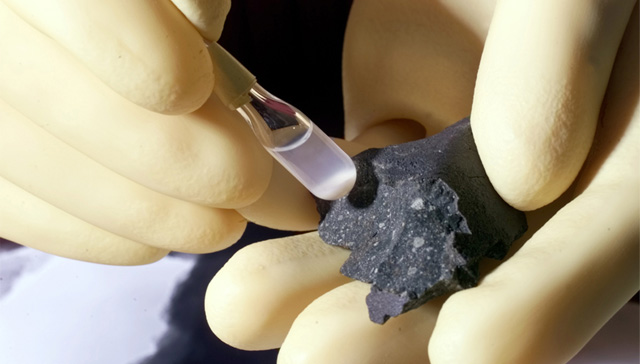
Watching Prometheus, the science-fiction film by Ridley Scott, with my son the other day got me to thinking about panspermia. This is the idea that life sometimes spreads through the universe by riding on interstellar flotsam and jetsam like meteors or asteroids.
Maybe a life-bearing planet blows up and some of the chunks have spores or at the very least a few building blocks of life. One of these chunks travels for centuries or millennia (or probably even longer) until it hits a lifeless planet where the spores come to life. Soon the planet is teeming with life.
(SPOILER ALERT)
This isn’t exactly what happened in Prometheus. At the start of the movie, a humanoid alien disintegrates itself so that it can unleash its DNA into the waters of a lifeless Earth. The DNA then starts dividing and/or mutating, eventually resulting in all the life on Earth.
Well, I assume it is mutating. Otherwise it would be very strange for all life to come from humanoid DNA. Although I suppose the alien could have been a colony of different organisms that were then all released into Earth’s lifeless oceans. Or maybe all the alien’s skin and intestinal bacteria were also released so they could spread throughout the Earth. Or any other of a number of possibilities.
